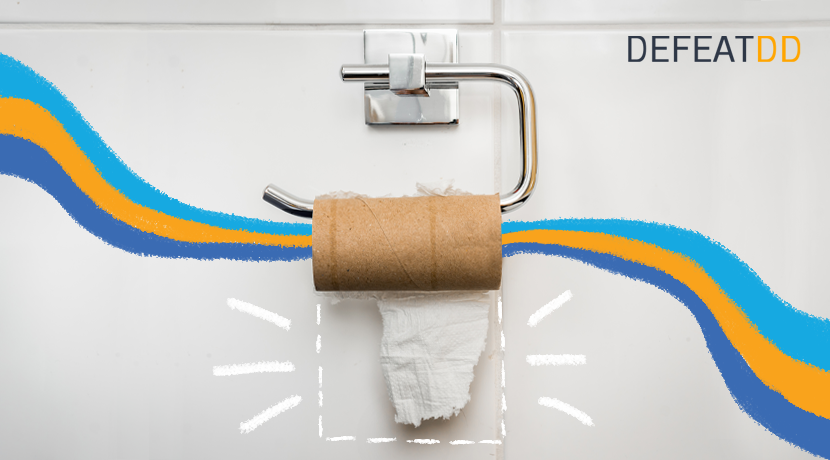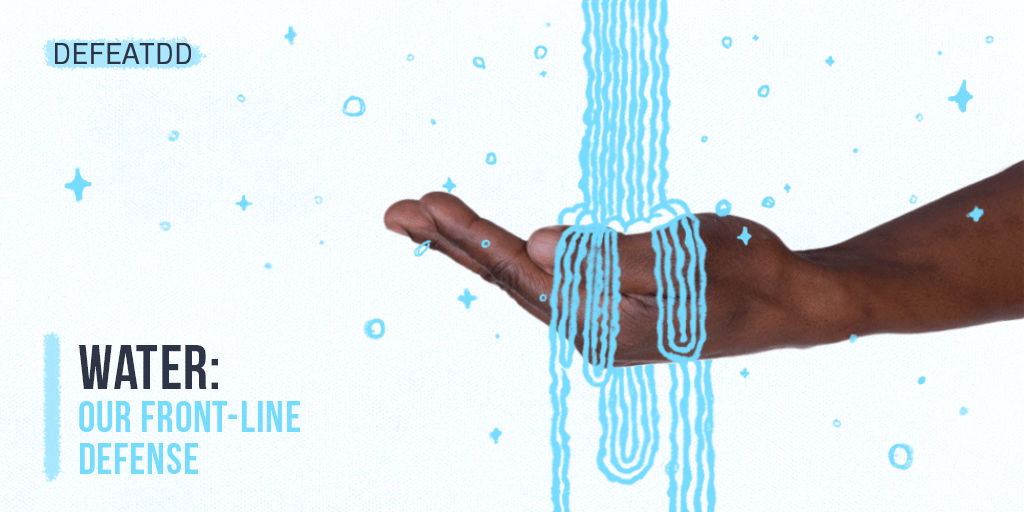
Toilet paper hoarding: what’s it really about?

As the world tries to adapt to the onslaught of the COVID-19 pandemic, one reaction of US citizens has been – at first glance – bizarre. Why are people frantic about stocking up on toilet paper? I confess I have not been immune to this frenzy and as I found myself counting the rolls our family has on hand, it occurred to me that it might have something to do with basic human dignity.
In places of great privilege, like my community and most of my country, it is unimaginable to have to live without toilet paper because it is a totem of living a civilized – i.e., sanitary, hygienic, some would say proper – life. Without toilet paper, would we feel human?
To us it is a necessity. The DefeatDD team would be tempted to say – a bare necessity. But in fact it is a luxury out of reach for many.
We’re not thinking of those whose daily lives require them to find a private, safe place to urinate and/or defecate outdoors. We don’t experience the discomfort and disease caused by drinking and cooking with water contaminated by sewage. We don’t even consider the low-income families in this country who don’t have either the money or living space to stock up on weeks’ worth of toilet paper.
But while the comfortable get all the toilet paper, it reminds me once again of how often wealth equals health. As with diarrheal disease, pneumonia, and typhoid, coronavirus most imperils those living in poverty – those with the least access to health services, forced to live in the most crowded conditions, and without near enough soap and clean water to wash away coronavirus or any other pathogens.

COVID-19 is a virulent pandemic rightly commanding our attention. I am grateful for the front-line health workers, those growing and selling food, and every person out there answering this moment by asking, “How can I help?” And – outside of the headlines – children and communities continue to have to live without toilets, without clean water, without reasonable access to vaccines or medicines. In these places coronavirus might have to get in line behind typhoid, behind rotavirus or cholera – the age-old diseases that comprise the silent epidemic.


